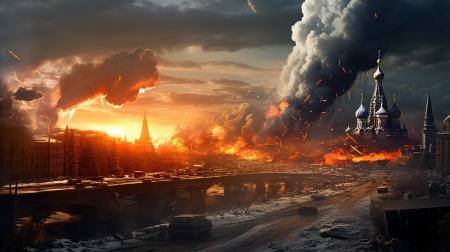
The United Nations intensifies disarmament dialogues in Geneva, New York, and Vienna amidst escalating concerns that the risk of nuclear warfare is rising. On the 78th anniversary of the Hiroshima atomic bombing, UN Secretary-General António Guterres emphasized the echoing threats of nuclear war reminiscent of the Cold War era.
Highlighting the catastrophic events of 6 August 1945, Mr. Guterres, in a statement at the Hiroshima Peace Memorial, stated, “Nuclear war tensions are re-emerging, and the world is witnessing increasing divisions and mistrust.” This sentiment was echoed by Izumi Nakamitsu, UN’s High Representative for Disarmament Affairs, who conveyed the UN chief’s message. She voiced concerns about nations flagrantly displaying nuclear capabilities as potential conflict tools.
Mr. Guterres unveiled his New Agenda for Peace in July, advocating for global unity against nuclear warfare. The Agenda implores member nations to reinforce international norms to prevent the use and proliferation of nuclear weapons. He emphasized that nuclear-armed states must pledge never to use these devastating weapons. The UN remains dedicated to bolstering disarmament rules, particularly focusing on the Treaty on Non-Proliferation of Nuclear Weapons (NPT) and the Treaty on the Prohibition of Nuclear Weapons.
With the NPT discussions ongoing in Vienna until 11 August, Ms. Nakamitsu cautioned the international community about the heightened risk of nuclear warfare, a threat level unseen since the Cold War. She attributed this to the prevailing geopolitical conflicts and increasing divisions among major global powers.
This unsettling scenario is further exacerbated by the record global military spending, which reached a staggering $2,240 billion in 2022. The reliance on nuclear weaponry is growing, manifested in updated nuclear programs, expanded military doctrines, and even open threats of usage, commented the UN High Representative for Disarmament Affairs.
The landmark 1968 NPT, signed by both nuclear and non-nuclear nations, is dedicated to halting nuclear weapons’ spread and promoting their disarmament. To date, 191 nations have endorsed the treaty, making it the most widely accepted arms control agreement.
The essence of the treaty focuses on non-nuclear nations abstaining from acquiring nuclear weapons, and in return, nuclear nations commit to sharing technological advantages and advancing disarmament efforts.
Recent discussions at the UN’s Conference on Disarmament in Geneva, which precede the NPT’s 2026 review, also touched upon disarmament and non-proliferation topics. Notably, they covered the emerging role of artificial intelligence (AI) in warfare, aiming to engage countries in AI’s responsible development for military applications.
Established in 1979, the Conference on Disarmament, while not directly a UN entity, aligns with the UN’s conviction that disarmament and non-proliferation are pivotal for a secure, human-centric development environment, as outlined in the UN Charter. In Geneva, member states also engage in discussions on various disarmament conventions, including the Anti-Personnel Landmine Convention and the Biological Weapons Convention, among others.


Wow, marvelous weblog layout! How long have you been blogging for? you make running a blog glance easy. The overall glance of your site is wonderful, let alone the content material!